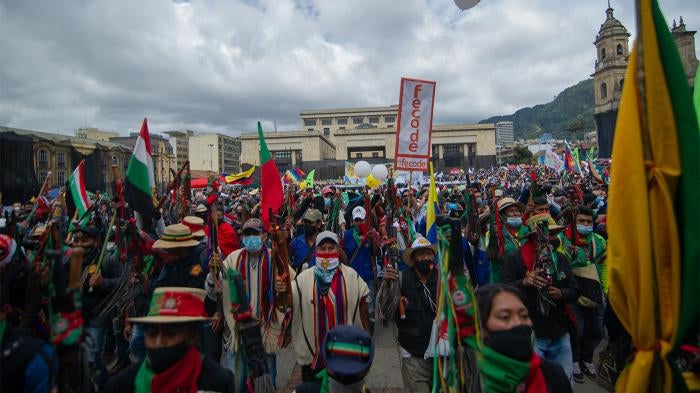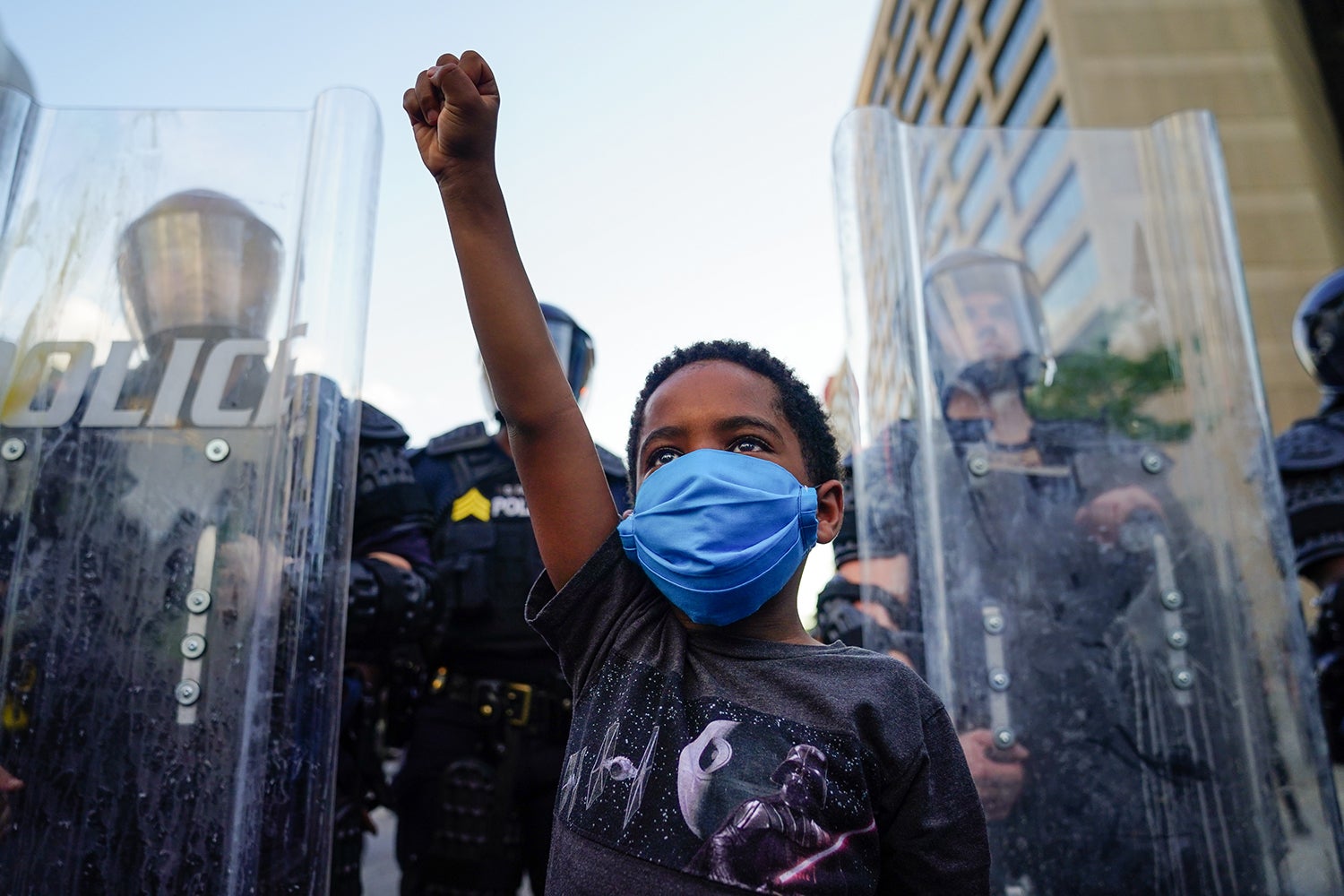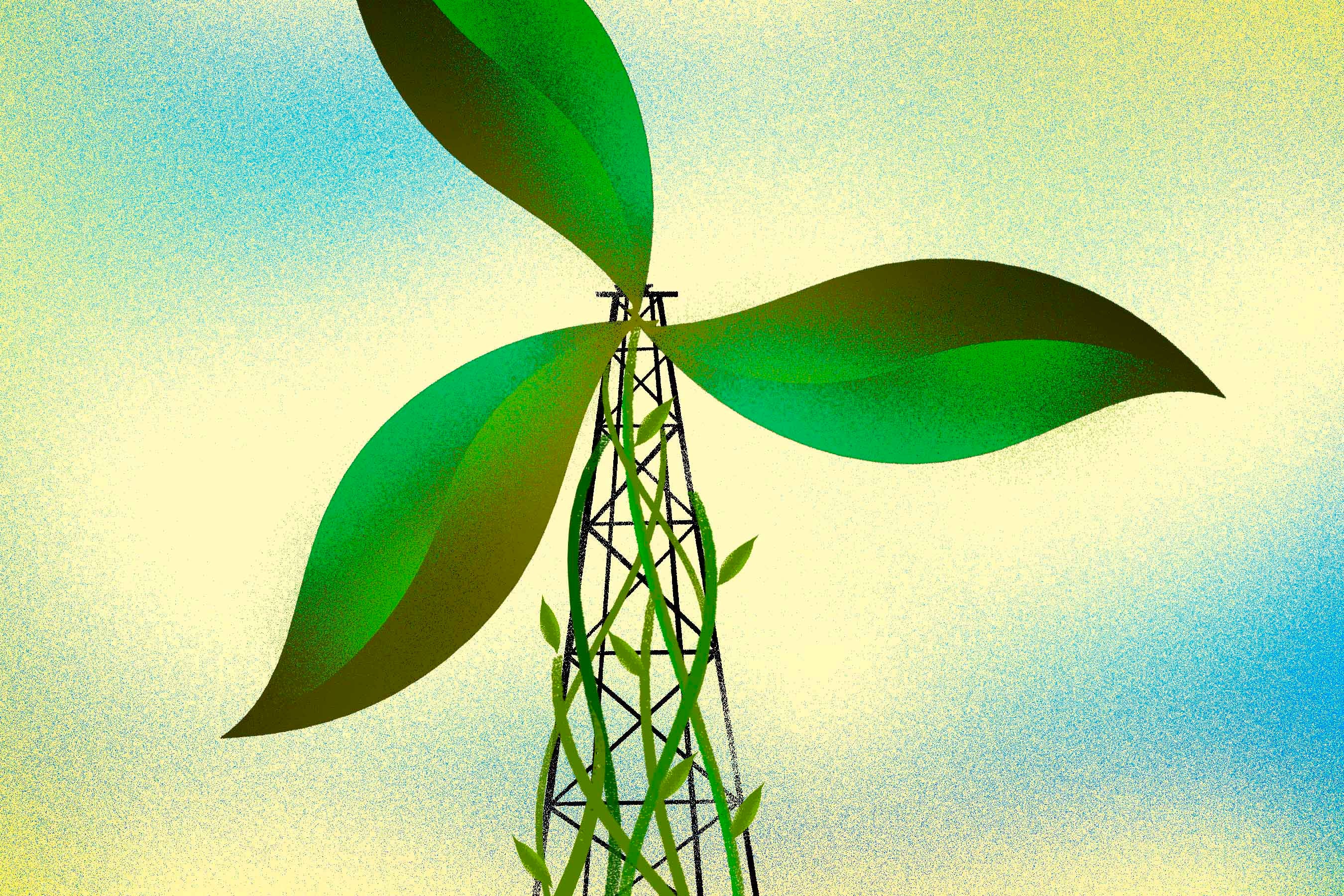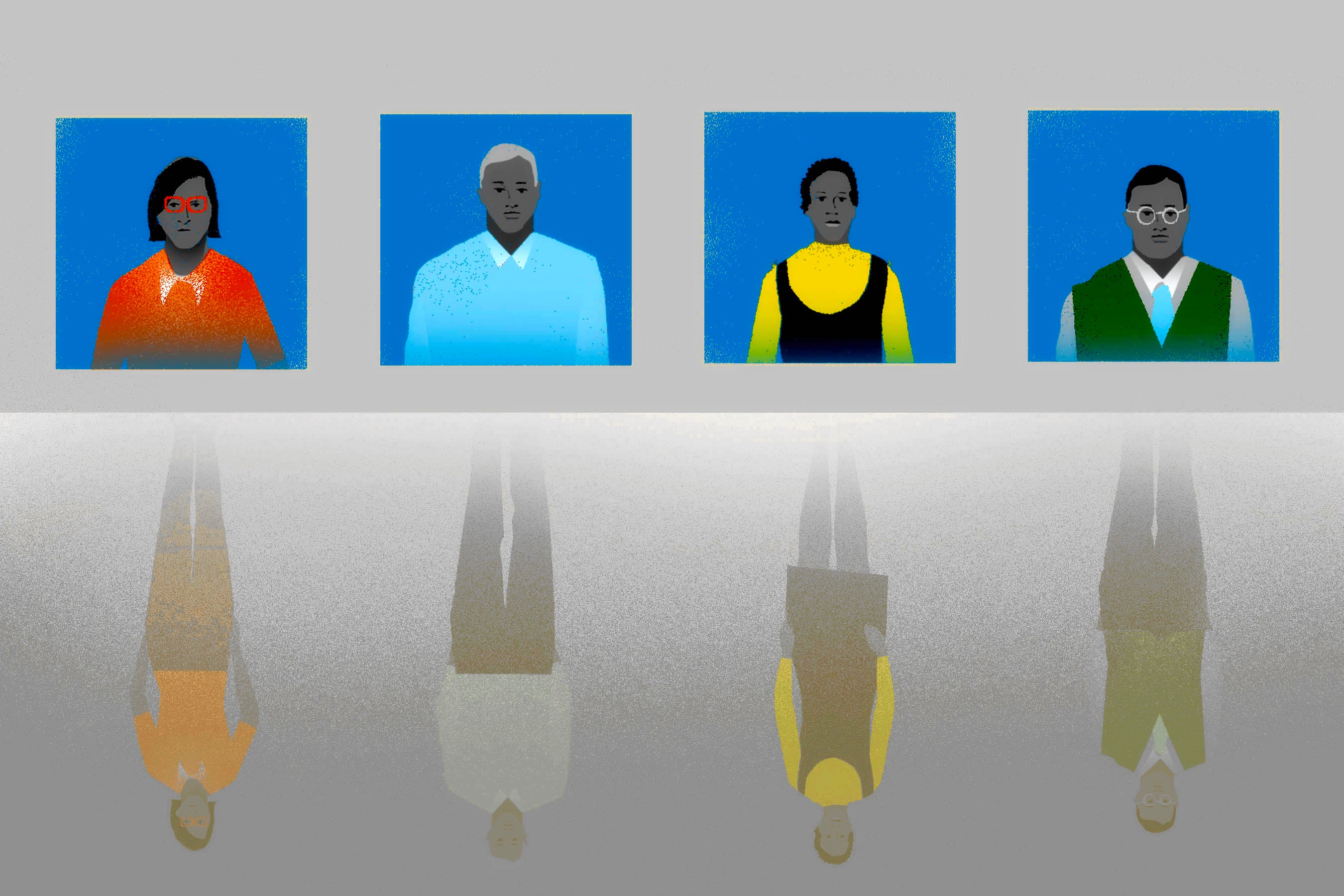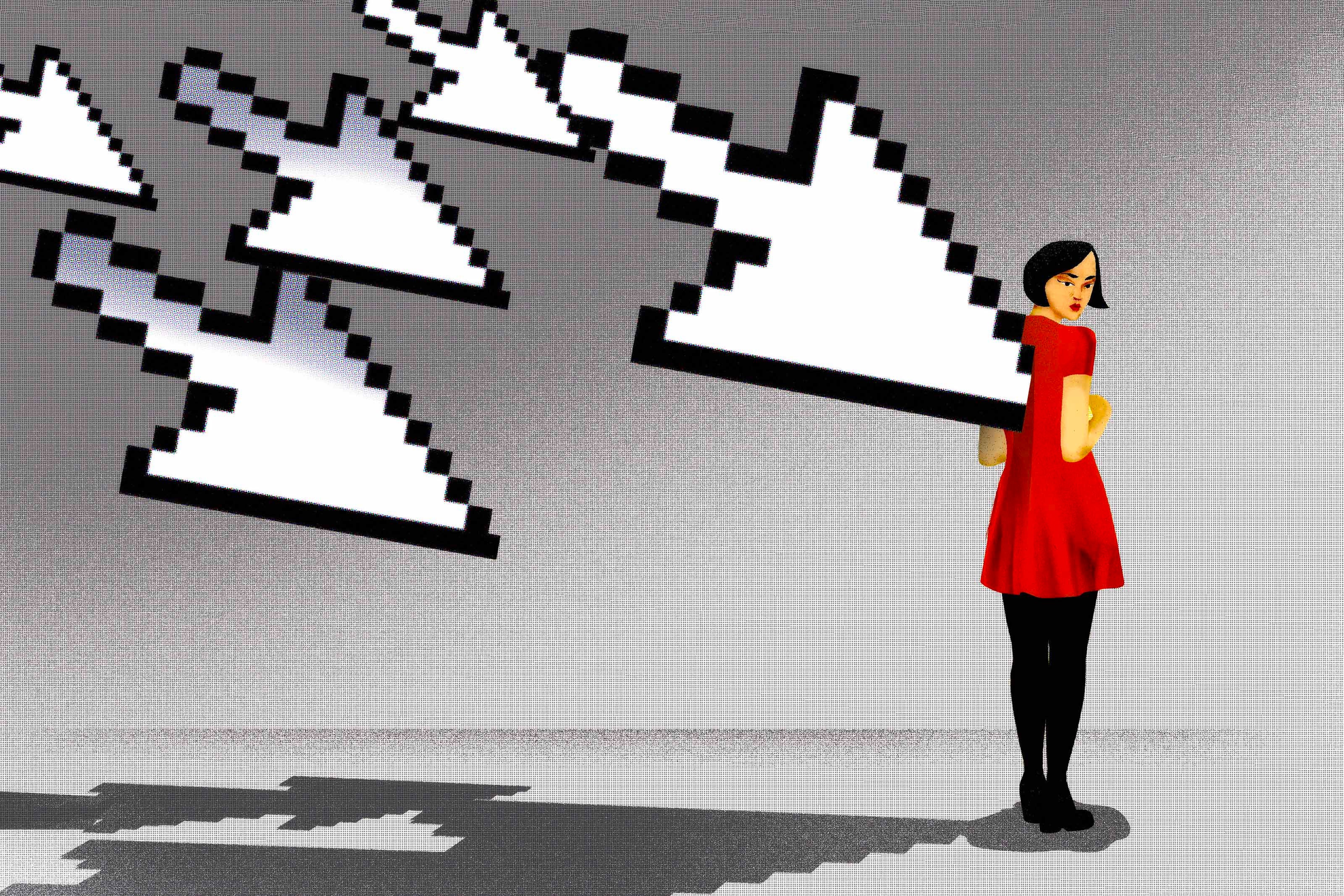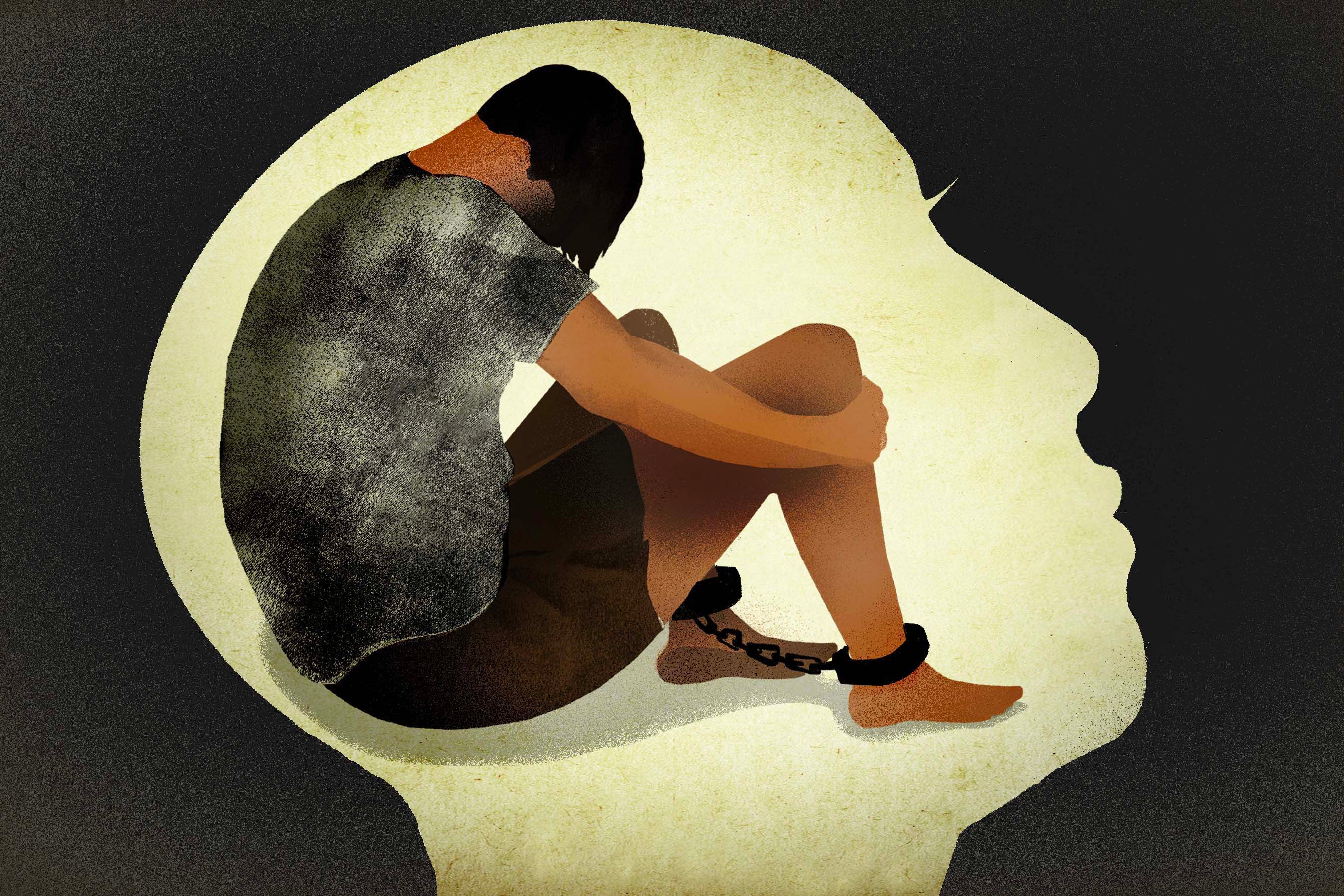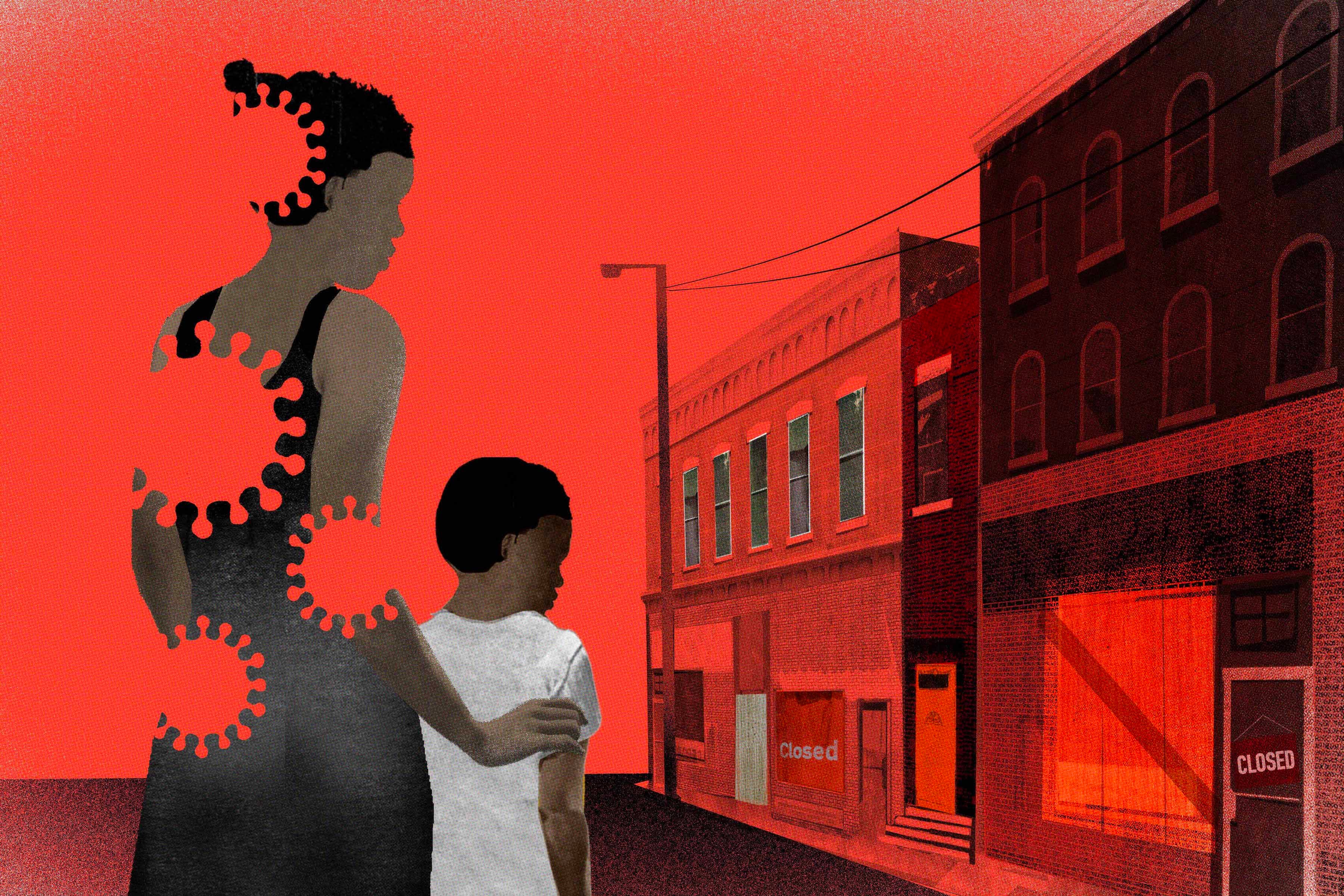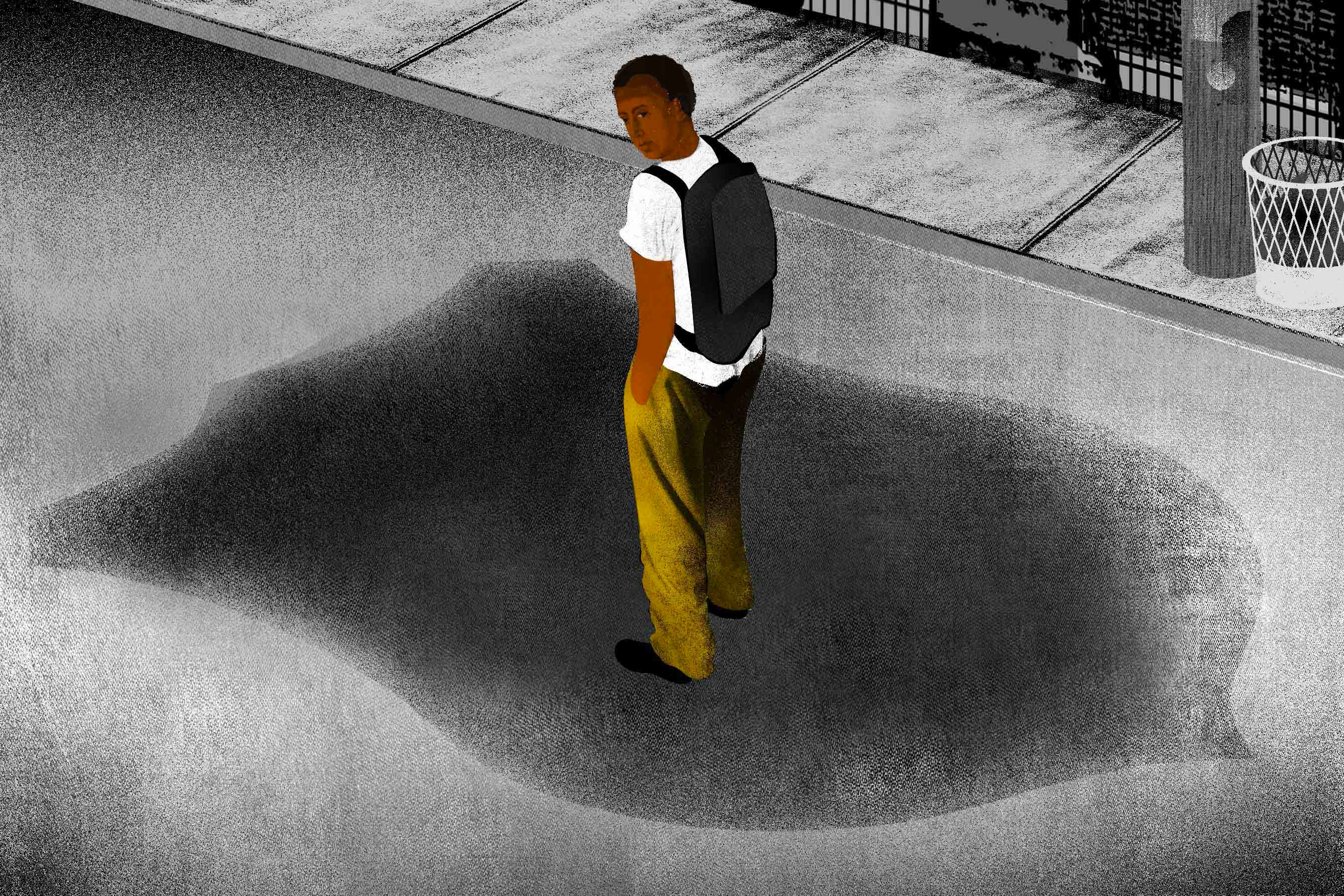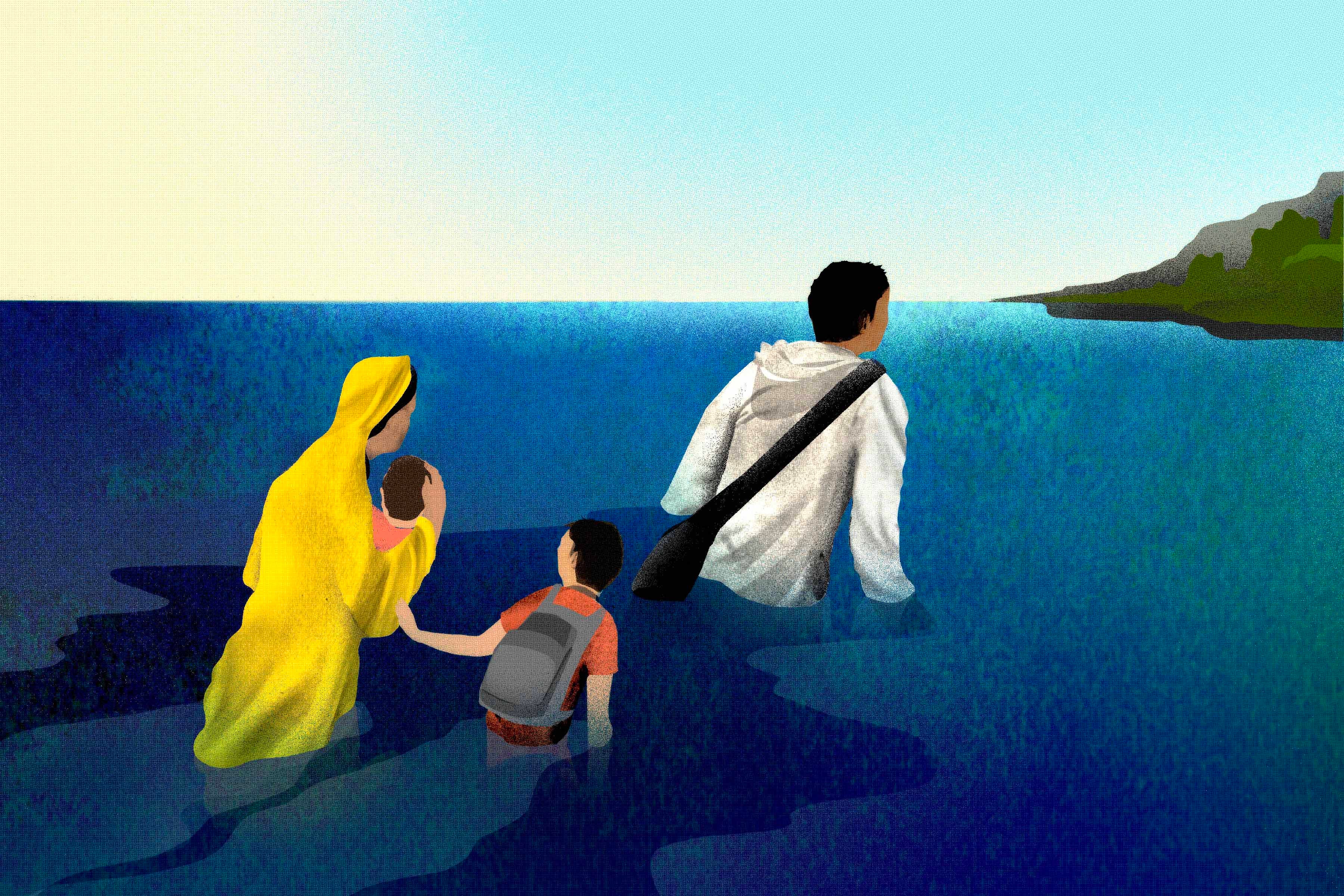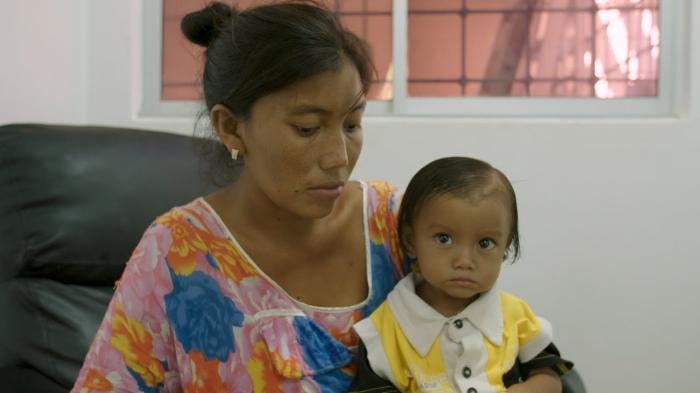The peace accord in 2016 between the Revolutionary Armed Forces of Colombia (FARC) and the government ended a 52-year armed conflict and brought an initial decline in violence. But conflict-related violence has since taken new forms, and serious abuses continue. Violence associated with the conflicts has forcibly displaced more than 8.2 million Colombians since 1985.
In 2020, civilians in various parts of the country suffered serious abuses at the hands of National Liberation Army (ELN) guerrillas, FARC dissidents, and paramilitary successor groups. Human rights defenders, journalists, indigenous and Afro-Colombian leaders, and other community activists face pervasive death threats and violence. The government has taken insufficient steps to protect them.
As of October, the government had confirmed more than 860,000 cases of Covid-19 and 26,000 deaths. In March, the government established a nationwide lockdown that lasted until September. The government closed schools in March, affecting an estimated 10 million students. While the government took some measures to ensure online teaching, many students were not able to attend. Some schools began reopening in September.
Impunity for past abuses, barriers to land restitution for displaced people, limits on reproductive rights, and the extreme poverty and isolation of indigenous communities remain important human rights concerns in Colombia.
Guerrillas and FARC Dissidents
In June 2017, the United Nations political mission in Colombia verified that FARC guerrillas who accepted the peace agreement with the government had handed over their weapons to the mission. The demobilized guerrilla group later announced it was forming a political party.
But a minority of dissident guerrilla fighters rejected the terms of the peace agreement, refused to disarm, and continue to commit abuses. Fighters of the guerrillas’ former Eastern Bloc, which never demobilized, continue to operate in several parts of the country under the leadership of Miguel Botache Santillana, known as Gentil Duarte.
Other FARC fighters disarmed initially but joined or created new groups, partly in reaction to inadequate reintegration programs and attacks against former fighters. As of August 2020, more than 300 former FARC fighters had been killed.
In August 2019, Luciano Marín Arango, known as Iván Márquez, the FARC’s former second-in-command and top peace negotiator, announced he was taking up arms again. He and other former FARC commanders created the FARC Second Marquetalia, named after the area where the FARC were created in the 1960s.
In the southern state of Cauca, FARC dissident groups have committed serious abuses, including murder, child recruitment, and forced displacement. They also imposed their own measures to slow the spread of Covid-19, including lockdowns, and threatened, attacked, and killed some for allegedly not complying.
The ELN continued, in 2020, to commit war crimes and other serious abuses against civilians, including killings, forced displacement, and child recruitment.
In Chocó state, on the country’s west coast, fighting continued between the ELN and the Gaitanist Self-Defense Forces of Colombia (AGC)—a group that emerged from right-wing paramilitaries. Fears of landmines, threats by armed groups, and the hazards of crossfire limited the ability of nearly 4,000 people in Chocó to leave their communities in August, a situation known as “confinement.” In already poor communities, confinement often undermines access to food.
Paramilitaries and Successors
Between 2003 and 2006, right-wing paramilitary organizations with close ties to security forces and politicians underwent a deeply flawed government demobilization process during which many members remained active and reorganized into new groups. These successor groups, most notably the AGC, continue to commit violations of the laws of war and serious human rights abuses, including killings, disappearances, and rape.
Implementation of the Justice and Peace Law of 2005, which offers reduced sentences to demobilized paramilitary members who confess their crimes, has been slow. Of more than 30,000 paramilitary troops who officially demobilized, 4,000 have sought to exchange a confession for a reduced sentence. As of October 2020, 650 had been sentenced.
Santiago Uribe, brother of former President Alvaro Uribe, was on trial at time of writing, for charges of murder and conspiracy, for his alleged role in the paramilitary group “12 Apostles” in the 1990s.
In August, the Supreme Court called former President Uribe to testify about his alleged role in massacres when he was governor of Antioquia department and in the 1998 murder of Jesus María Valle, a human rights lawyer.
In March, Salvatore Mancuso, a former top paramilitary commander who was extradited to the US in 2008, completed his sentence there for drug trafficking. If returned to Colombia, Mancuso could help uncover the truth about hundreds of crimes. But Mancuso, who holds Colombian and Italian nationality, asked to be sent to Italy. After Colombian authorities made several flawed attempts to ensure his return, the US Department of Homeland Security finally ordered his deportation to Colombia in August. Mancuso has applied for asylum in the US, however, and as of October, his deportation remained pending.
Violations by Public Security Forces
From 2002 through 2008, army brigades across Colombia routinely executed civilians in what are known as “false positive” killings. Under pressure from superiors to show “positive” results and boost body counts in their war against guerrillas, soldiers and officers abducted victims or lured them to remote locations under false pretenses—such as promises of work—shot them dead, placed weapons on their bodies, and reported them as enemy combatants killed in action. The number of allegations of unlawful killings by security forces has fallen sharply since 2009, though credible reports of some new cases continue to emerge.
As of September 2020, the Attorney General’s Office had opened over 2,000 investigations into alleged unlawful killings by army personnel from 2002 through 2008, and had achieved over 900 convictions in cases against more than 1,600 mid- and low-level soldiers, including convictions of the same individual in various cases. Over 250 members of the Armed Forces had testified about their roles in false positives before the Special Jurisdiction for Peace, a transitional justice mechanism created by the peace agreement with the FARC.
Authorities have largely failed, however, to prosecute senior army officers involved in the killings and instead have promoted many of them through the military ranks. As of September 2020, cases against at least 29 army generals under investigation for false-positive killings had made scant progress.
In 2019, the New York Times, Semana magazine, and Human Rights Watch published documents showing that the army had, that year, reinstated military policies resembling those that led to the false positives. In May 2019, President Iván Duque created a commission charged with reviewing army policies to ensure their consistency with international human rights and humanitarian law. The commission was asked to present a final report by November 2019, but had not issued findings as of October 2020.
In November 2019, the Colombian National Police committed multiple abuses against demonstrators who mobilized in the streets to protest issues ranging from tax reform proposals to the killing of human rights defenders. In several cases, the police engaged in arbitrary detentions and used excessive force, including beatings.
In December 2019, Semana magazine published evidence that army soldiers had, that year, unlawfully surveilled journalists, human rights defenders, and some government officials.
On March 21, 2020, 24 prisoners were killed and 76 injured as police guards repressed a riot in La Modelo jail in Bogotá. As of September, no one had been charged in connection with the injuries and deaths.
At least six civilians died between March and June, during police operations to eradicate crops of coca—the raw material of cocaine—in various parts of the country, media and local rights groups reported.
In September, Javier Ordoñez, a lawyer, died at the hands of police who repeatedly shocked him with a stun gun. The death prompted hundreds of Colombians to take to the streets in largely peaceful demonstrations. Police responded with force that often appeared excessive, leaving 13 dead and hundreds injured.
Also in September, the Supreme Court ordered that the government take action to avoid police abuses during protests, including by strengthening supervision over officers, reviewing protocols on the use of force, and suspending the use of 12-gauge shotguns.
Violence Against Community Activists
Threats and attacks against Indigenous, Afro-Colombian, and other community activists continue. As of October, the Office of the UN High Commissioner for Human Rights (OHCHR) had documented killings of 49 human rights defenders in 2020 and was verifying another 50 cases.
On June 8, Edison León Pérez, a community leader from Putumayo, was killed. Members of La Mafia, an armed group in the area, appear responsible: Days earlier, Léon Pérez had sent a letter to Putumayo authorities complaining that the group was forcing residents to organize checkpoints to question and screen people entering the area for symptoms of Covid-19.
As of September, the Attorney General’s Office was investigating 397 cases of murder of human rights defenders since 2016 and had obtained convictions in 61 cases. Authorities have made much less progress in prosecuting people who ordered murders against human rights defenders.
Most such killings have occurred in areas where illegal economic activities, such as drug production and trafficking, are common. These include Putumayo, Cauca, Valle del Cauca and Nariño states in the south; the Catatumbo region, on the border with Venezuela; and the Bajo Cauca region.
The National Protection Unit has granted individual protection measures to hundreds of human rights defenders who have reported threats, providing cellphones, bulletproof vests, and bodyguards. But many murdered defenders had not reported threats or requested protection.
Collective protection programs created in 2018 for at-risk communities and rights groups had not been implemented at time of writing, and an action plan introduced in November 2018 to protect community leaders had produced no evident results.
Judicial Independence
In August, the Supreme Court ordered the pre-trial arrest of former president and senator Alvaro Uribe, mentor of current President Duque and leader of the governing party, the Democratic Center. Uribe was detained as part of an investigation into whether he bribed former paramilitary fighters to change their testimony about his alleged role in establishing paramilitary groups.
In reaction to the court’s decision, President Duque and other Democratic Center leaders made statements that appeared designed to smear or intimidate the court and undermine the legitimacy of the decision. They proposed overhauling the entire court system and unifying the high courts into a single court—a move that could seriously undermine judicial independence in the country.
In late August, after Uribe resigned his seat in the Senate and the Supreme Court, which handles probes involving lawmakers, relinquished jurisdiction, sending the case to the Attorney General’s Office. In October, the Supreme Court ruled that Uribe’s resignation from the Senate meant that he should be investigated under a different law of procedure. On October 10, a judge ruled that Uribe could not be detained under the new law and ordered his release. The investigation continued at time of writing.
Peace Negotiations and Accountability
The peace agreement between the Colombian government and the FARC provided for the creation of a Special Jurisdiction for Peace.
At time of writing, Special Jurisdiction magistrates had prioritized seven situations for analysis: kidnappings by the FARC; false-positive killings; army and FARC abuses against Afro-Colombian and indigenous people in three municipalities in Nariño state; FARC and army abuses in the Urabá region; FARC and army abuses in the northern part of Cauca state; government abuses against members of the Patriotic Union, a political party created by the FARC in the 1980s; and FARC recruitment and use of children.
In July, the Special Jurisdiction concluded that demobilized FARC fighters were facing a “grave situation of human rights violations,” and ordered government agencies to take action to protect them.
In August, the Special Jurisdiction began taking testimony from former FARC commanders about recruitment and use of children—a widespread practice that guerrilla fighters have often tried to whitewash.
Throughout 2020, the Special Jurisdiction issued precautionary measures to protect several cemeteries where the remains of people who went missing during the decades-long armed conflict are expected to be found.
Internal Displacement and Land Restitution
Conflict-related violence has displaced more than 8.2 million Colombians, out of a population of 49 million, since 1985, government figures reveal. More than 75,000 people were displaced in 2019.
Implementation of land restitution under the 2011 Victims’ Law continues to move slowly. The law was enacted to restore millions of hectares left behind by or stolen from internally displaced Colombians during the conflict. As of August, the courts had issued rulings in only 11,300 of more than 125,000 claims filed.
The Covid-19 pandemic and its related restrictions hampered the work of humanitarian agencies helping displaced people in Colombia.
Migration from Venezuela
Colombia has received by far the largest number of Venezuelan exiles fleeing the human rights and humanitarian crisis in Venezuela. As of June 2020, more than 1.7 million Venezuelans lived in Colombia.
In July 2017, the Colombian government created a special permit allowing Venezuelans who enter the country legally but overstay visas to regularize their status and obtain work permits and access to basic public services. As of August 2020, over 600,000 Venezuelans had obtained the permit.
In November 2019, Colombian authorities expelled 60 Venezuelans accused of compromising public order and national security in the context of nationwide protests. Some expulsions appear to be arbitrary.
Between March and August, as the Covid-19 pandemic raged, more than 100,000 Venezuelans returned to their country.
Gender, Sexuality, and Gender-Based Violence
Gender-based violence, including by armed groups, is widespread. Lack of training and poor implementation of treatment protocols impede timely access to medical services and create obstacles for women and girls seeking post-violence care and justice. Perpetrators of violent, gender-based crimes are rarely held accountable.
In the southwestern municipality of Tumaco, where sexual violence, including by armed groups, is pervasive, women face an array of obstacles to protection and justice.
In September 2019, a group of soldiers reportedly kidnapped and raped a 15-year-old indigenous Nukak Makú girl. In July 2020, Major General Eduardo Zapateiro, commander of the army, said authorities were investigating 118 soldiers for alleged cases of sexual abuse since 2016.
Abortion in Colombia is legal only when the life or health of the pregnant person is at risk, the pregnancy results from rape, or the fetus has conditions incompatible with life outside the womb. But women and girls seeking legal abortions face many barriers.
Despite Colombia’s strong legal protections on the basis of sexual orientation and gender identity, the human rights ombudsperson has raised concerns about high levels of violence against lesbian, gay, bisexual, and transgender people.
In response to the Covid-19 pandemic, on April 8, 2020 the government of Bogotá established a gender-based quarantine. Despite transgender-sensitive provisions in the decree, there were reports of some cases of police abuse against transgender and non-binary people. Bogotá scrapped its gendered quarantine starting on May 11.
The government of Cartagena also implemented a gender-based quarantine on April 13 and lifted it on May 11.
Indigenous Rights
Indigenous people in Colombia endure disproportionate levels of poverty, impeding their ability to exercise their social and economic rights. In 2019, at least 64 children under age five—the majority of them belonging to Wayuu indigenous communities—died in the state of La Guajira of causes associated with malnutrition and limited access to drinking safe drinking water. Inadequate government efforts and the Covid-19 lockdown have exacerbated the Wayuu malnutrition crisis.
Disability Rights
Colombia adopted Law 1996, which recognizes full legal capacity for people with disabilities. Legal capacity has been considered a threshold right because it is instrumental to enjoy other rights, like the right to marry, have a family, enter into financial transactions, and exercising political rights. In 2019, a law clinic and a private citizen challenged the constitutionality of Law 1996. A Constitutional Court ruling was pending at time of writing.
Key International Actors
The United States remains the most influential foreign actor in Colombia, and approved US$448 million in aid for Colombia for fiscal year 2020. A portion of US military aid is subject to human rights conditions, but the US Department of State has not rigorously enforced them.
In July, the US House of Representatives passed a bill requiring the US secretary of state to produce a report examining unlawful surveillance by Colombian security forces, possibly with US assistance, since 2002. The bill would also limit use of US funds for aerial fumigation of coca crops. As of September, the bill had yet to become law.
In August, the UN special rapporteur on the independence of judges and lawyers said he was following the situation in Colombia “closely,” noting that judicial independence and separation of powers required respecting the Supreme Court’s decision ordering Uribe’s house arrest.
In July, the Inter-American Court of Human Rights concluded that Colombia’s 2013 removal from office of then-mayor of Bogotá Gustavo Petro violated his political rights. The court ordered Colombia to modify legislation governing disciplinary proceedings against elected officials.
The Office of the Prosecutor of the International Criminal Court continues to monitor Colombian investigations of crimes that may fall within the court’s jurisdiction.
In 2016, at the request of the government of then-President Juan Manuel Santos, the UN Security Council established a political mission in Colombia to monitor and verify implementation of the FARC peace accord. In September 2020, the Security Council extended the mission’s mandate for another year, upon request of the Colombian government. But the government has yet to ask the council to expand the mission’s mandate to include the verification of sanctions imposed by the Special Jurisdiction for Peace—one of the mission’s tasks under the peace accord.
The UN Office of the High Commissioner for Human Rights continues to play a key role in defending and promoting human rights in Colombia.
In August, the UN offices in Colombia expressed concern about killings of former FARC fighters and human rights defenders, as well as a recent increase in massacres.
The Colombian government continues to support efforts to address the human rights crisis in Venezuela, leading initiatives by the Lima Group, a coalition of regional governments monitoring the crisis.
